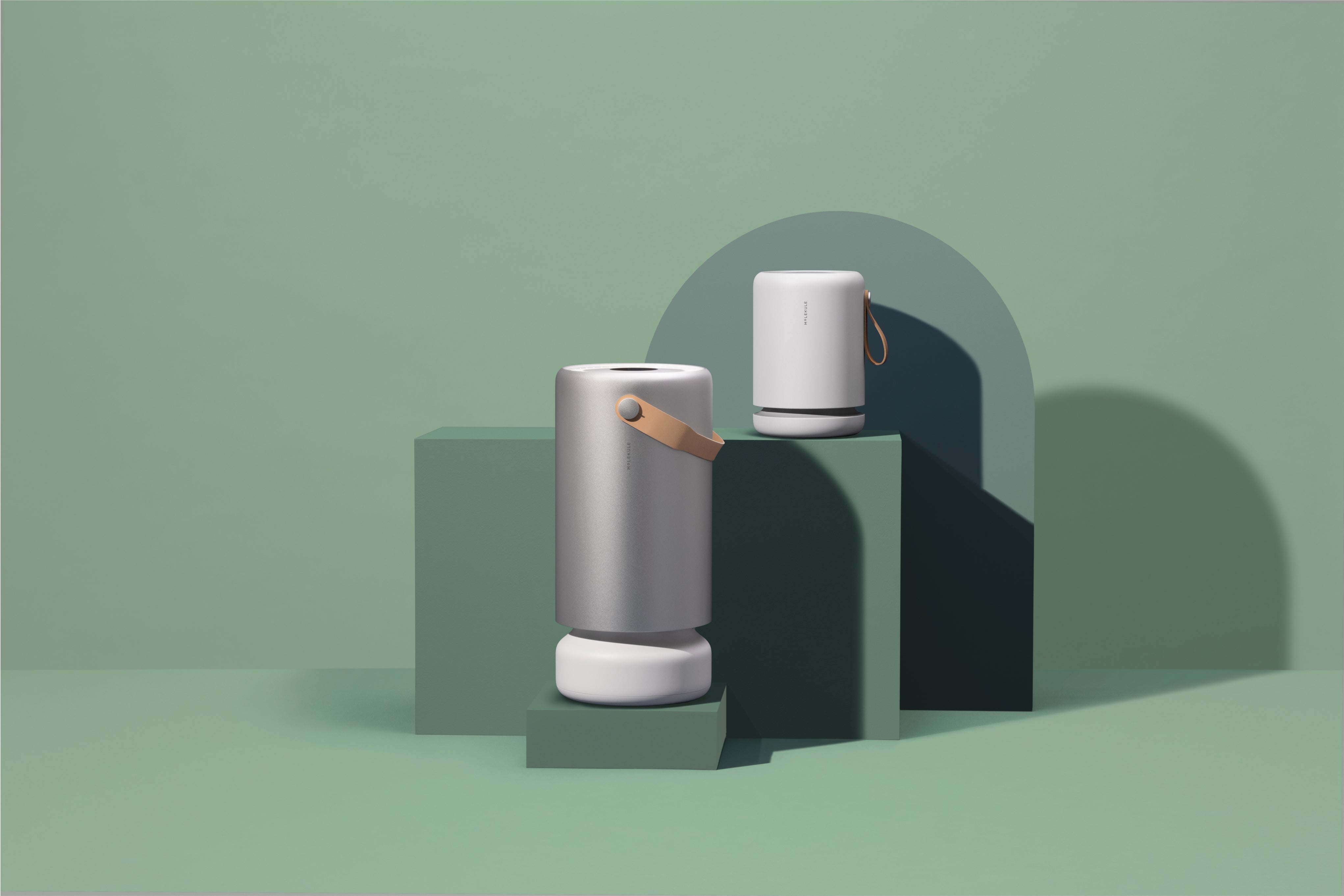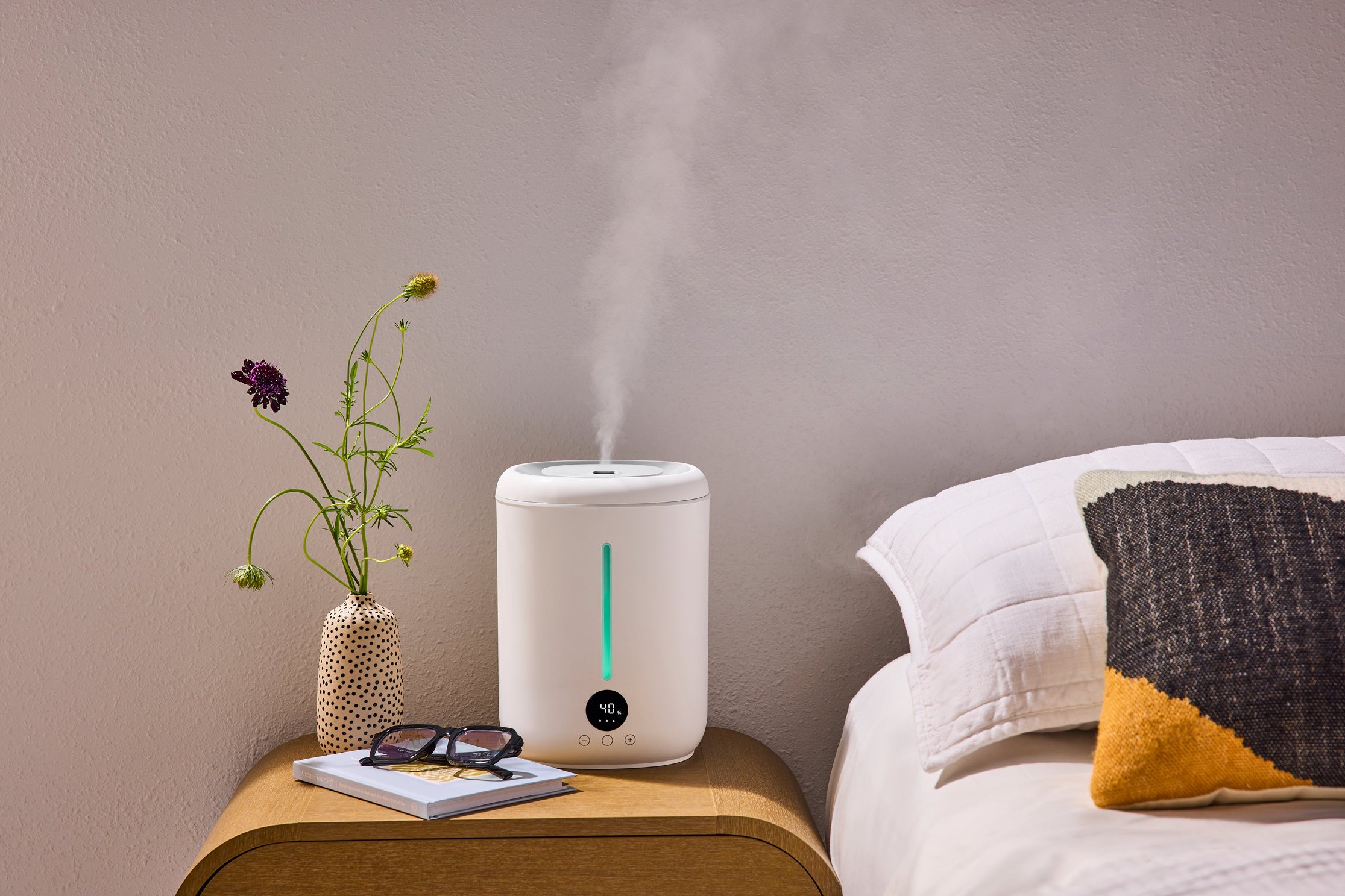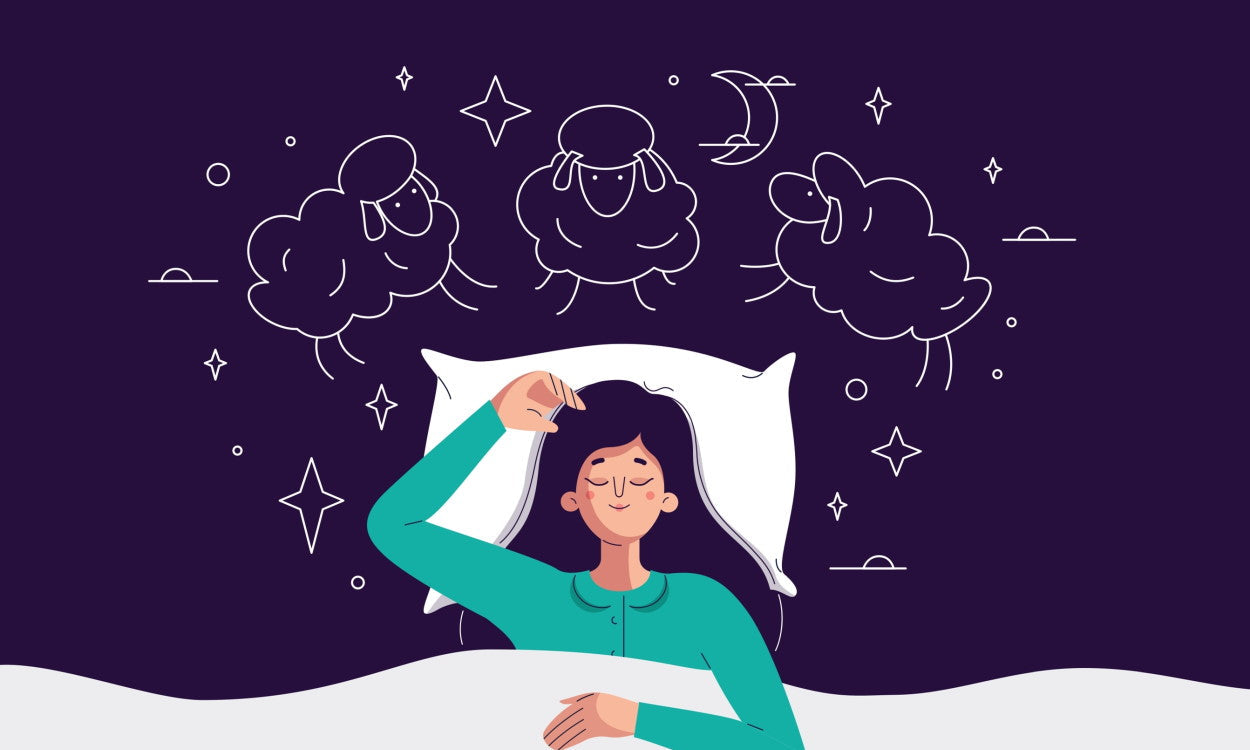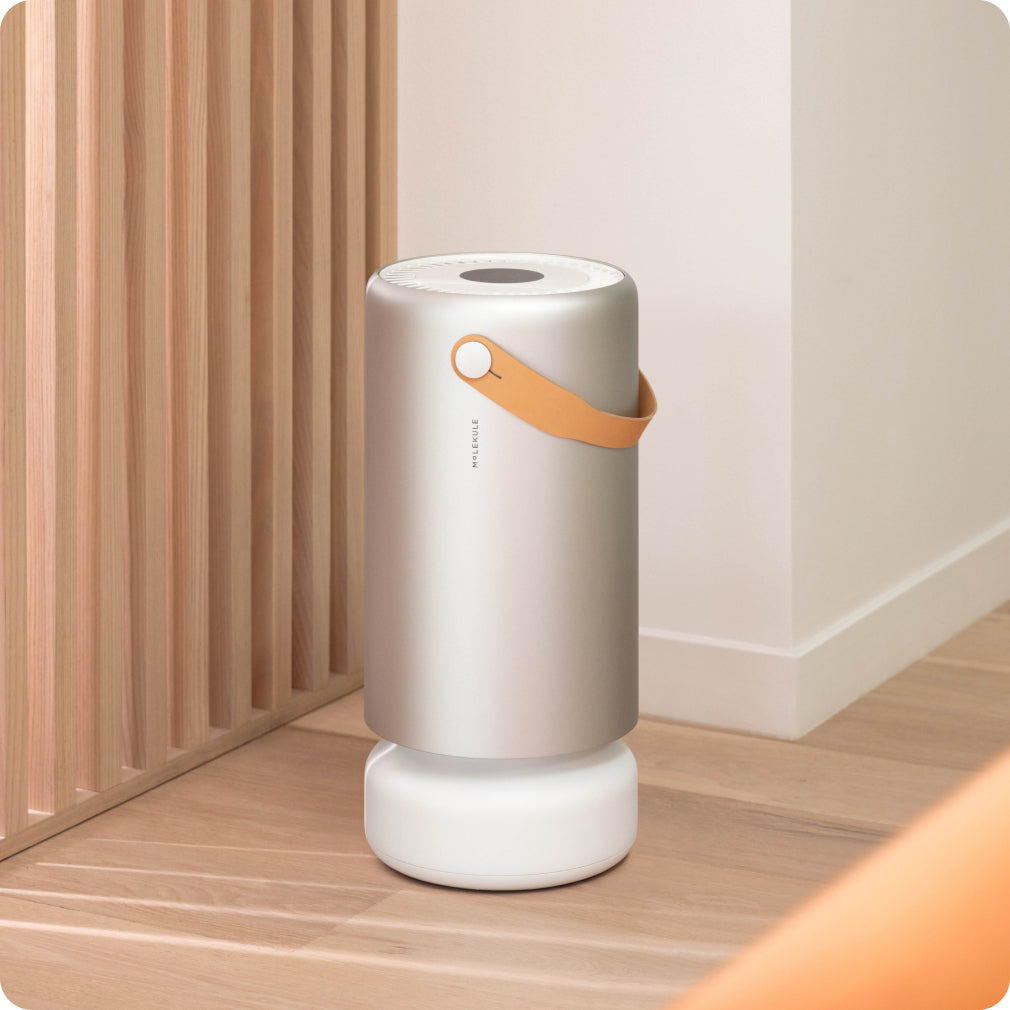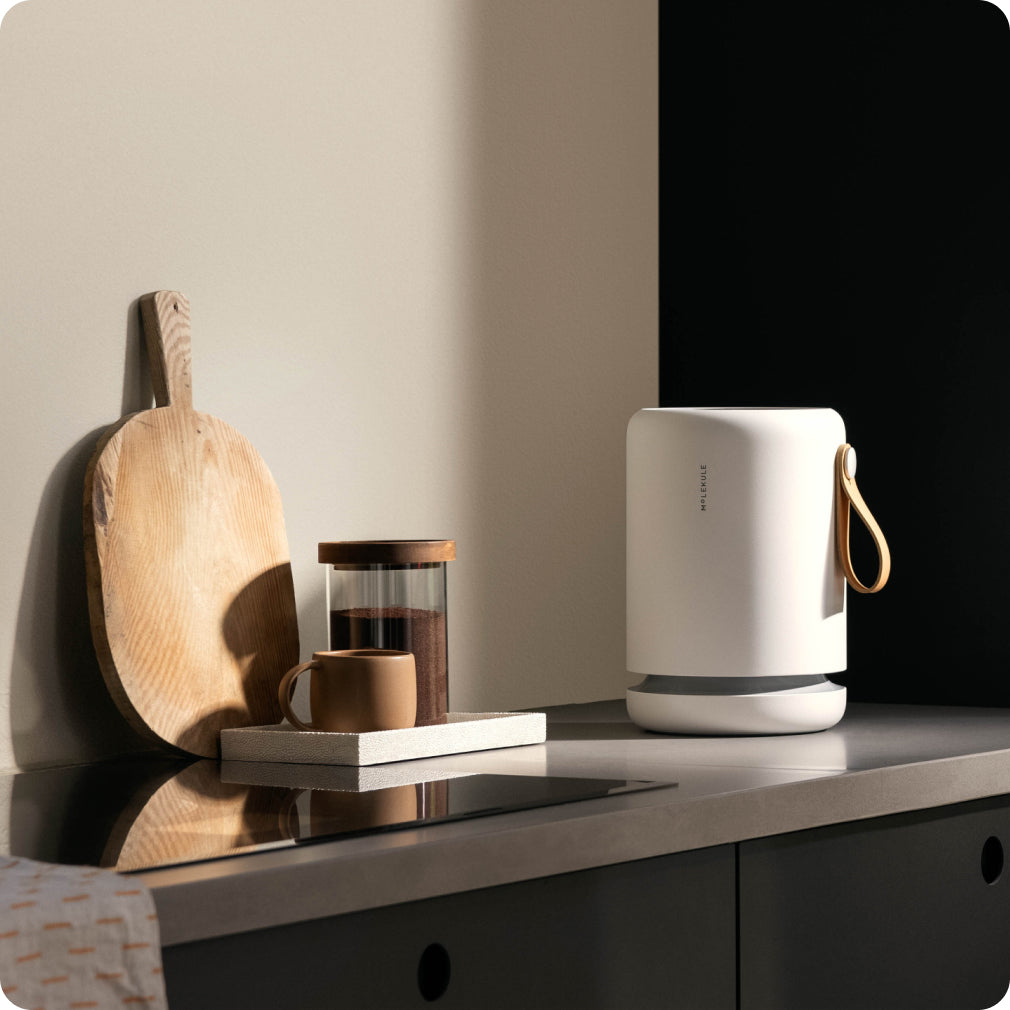Updated by the Molekule Insights Team on 2.27.2024.
The benefits of red light therapy, cool sleep, and clean air extend well beyond a few extra zzzs. Functional changes to your bedroom can lead to a deep impact on your body, too.
There’s at least one thing we all have in common: We’re all born into this chaotic world. And for most of us, one of the most important ways to endure its everyday effects is to reset the resilience in our bodies with adequate sleep.
Did you know poor sleep quality or overall lack of sleep is now being directly tied to worsened health outcomes and chronic disease? What a nightmare!
You could say the need for sleep is hardwired in our genes — because it basically is. Scientists often consider the effects of sleep under the academic umbrella of epigenetics. The field defines any research into the ways behavior and changes in the environment can actually affect the way your genetics work. Although your DNA is set in stone, epigenetics refers to the ways in which you can encourage your body to read the DNA differently, thereby offering the chance to reverse the negative impact within your body’s code. Changing epigenetic impact is all about creating spaces (say, your bedroom), and habits (say, not smoking and maintaining clean air in your home) that encourage positive health benefits.
Epigenetic wellness can be bolstered through better sleep, which can be enhanced and aided with natural therapies. Getting good sleep is all about the basics: light, temperature, and air. Here are three scientifically-backed ways to get better sleep naturally and support overall health potential:
1. Engage in red light therapy.
Red light therapy has become the ultimate wellness tool these days when it comes to reigniting your cellular health, rejuvenating your skin, reducing pain and inflammation, and improving your overall sleep quality.
Why? Let’s look to nature to find out.
The sun has an entire light spectrum—infrared, green, blue, red, orange, yellow, violet—that is meant to signal different hormonal responses in our body throughout the day. Think back to the old farm days, when there were no computers, no screens, and no artificial light. You were meant to rise with the sun, and sleep with the moon.
With higher amounts of blue light during the day, the body naturally produces larger levels of cortisol so as to increase productivity. However, with the rise of artificial blue-light sources (screens, fluorescent lights), our bodies aren’t able to go into rest mode as easily, thereby staying in a high-cortisol (high-stress) state. The result? Our overall melatonin production is impaired—meaning worse sleep, worsened biomechanical recovery, and an increased amount of stress on the body. Signal: Premature aging and chronic illness!
Since it’s very unlikely that 1) screens are going away anytime soon or 2) that most of our jobs will suddenly require us to spend more time in natural light, brands like Joovv are making it easy to get the full benefits of red light therapy while in the comfort of your own home.
Joovv’s red light systems, which come in an array of sizes, are true medical-grade (which is important) tools and offer the ideal balance of red and near infrared light. This powerful combo penetrates deeply into the skin to activate your body’s optimal mitochondrial function and recovery processes, and it only requires a 10-20 minute session per day.
2. Lay down the law of thermoregulation.
The next time you struggle to fall asleep, tell yourself to “cool it!” That’s because our bodies tend to prefer effectively thermoregulated environments (i.e. cool temperatures) to sleep better at night.
There are multiple stages within our regular sleep patterns that can benefit from cooler temperatures—both in the bedroom itself and from the confines of the mattress below us. Right from the get-go, cool temperatures can act as a cue for your brain to fall asleep faster. And then, as you fall into deeper sleep, cool environments have been shown to help to extend your REM cycle. If your core body temperature stays relatively low throughout the night, you are able to produce and reap the benefits of more melatonin.
Creating a cool environment can take many forms. One effective way to stay cool while sleeping is to sleep atop a cooling mattress. You could also invest in a cooling pillow, which has been shown to help people fall asleep faster and maintain better sleep throughout the night by cooling the occipital region of your brain. Weighted blankets, too, can be outfitted to promote cooling from above. Brands like Chilisleep focus entirely on cooling your environment and creating sleep systems that support the perfect temperature for rest.
3. Take a deep breath of purified air.
They say life is not measured by the number of breaths you take (rather, of course, it’s by the number of moments that take your breath away)… but, in fact, life could be measured by breaths. And if you spend half your life sleeping, half of those breaths are relatively unconscious, possibly steeped in risky inhalants.
Air pollution indoors is just as affecting to our health as it is outdoors. Indoor pollution can be chock full of reactive chemicals that can prevent our bodies from working properly and can even lead to long-term disease. And yes, exposure to bad air quality can have long-term adverse effects on the quality of your sleep.
Reducing air pollution in the bedroom with an air purifier is the simplest way to breathe many hours of cleaner air and reduce chemical stressors in your environment. Molekule air purifiers are especially effective in diminishing the effects of indoor pollutants because they destroy nasty chemicals in the air rather than merely collecting them. By eliminating bad air quality in your bedroom, you may experience better sleep quality, and help support your long-term health.
Sleep as Nourishment
We asked nutritionist Jess Bippen for her sleep tips, as she knows that good quality sleep is just as nourishing for your body as mind as a healthy diet and exercise. She corroborated our tips, and reminded us that sunlight is vital for regulating our circadian rhythms and getting the best night's sleep possible.
All in all, if you need motivation (or incentive!) to redesign your bedroom, consider the importance of your sleep and overall health. The environment you maintain in your bedroom can support epigenetic wellness at a deep level and provide you with lasting benefits. Perhaps the best way to think of your bedroom is as a sanctuary that is meant to support you for the long haul.
